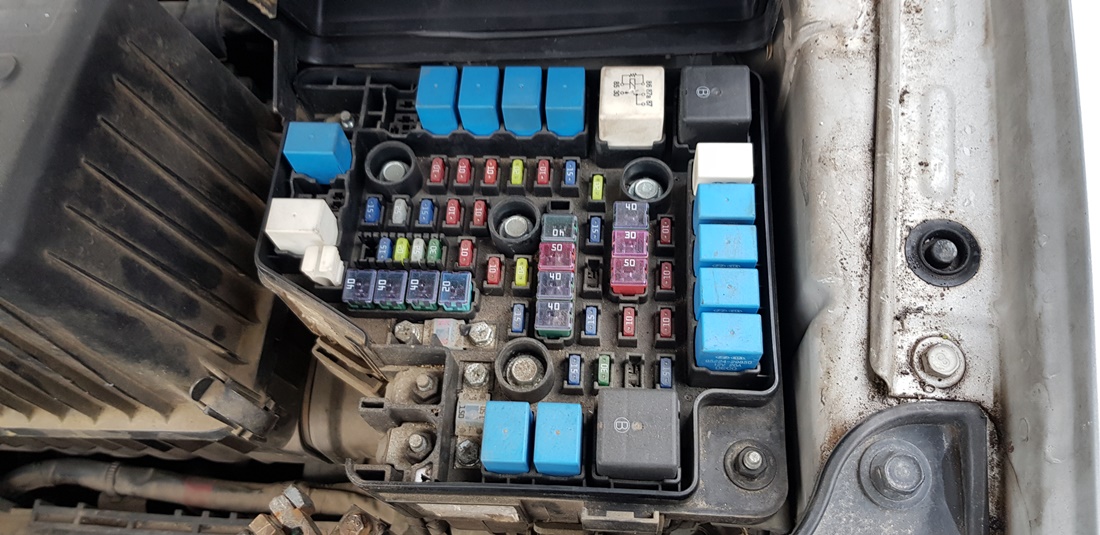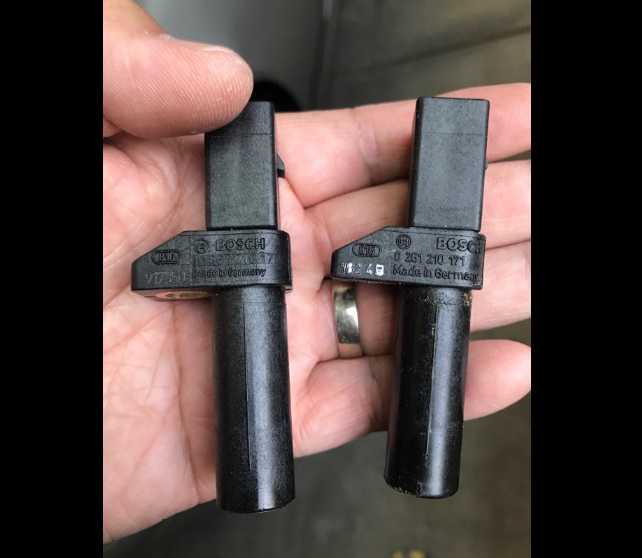Ruthenium Spark Plugs have gained popularity in the automotive industry as an effective tool for improving engine performance.
While their benefits are well-known, many drivers may not fully understand how they work or why they’re popular.
This guide provides an in-depth look at Ruthenium Spark Plugs and how they can be used to improve engine efficiency and performance.
We’ll cover topics such as what they are, how they work, and why they’re so popular in the automotive industry.
- Key Takeaway
- What Are Ruthenium Spark Plugs?
- Pros and Cons of Ruthenium Spark Plugs
- Which Vehicles Can Benefit From Ruthenium Spark Plugs
- Difference Between Ruthenium and Iridium Spark Plugs
- Difference Between Ruthenium and Platinum Spark Plugs
- How Long Does a Set of Ruthenium Spark Plugs Last?
- Do Ruthenium Spark Plugs Fit All Types of Engines?
- Should You Use Ruthenium Spark Plugs?
- Is It Worth Getting Ruthenium Spark Plugs?
- Do You Gap Ruthenium Spark Plugs?
- How Much Do Ruthenium Spark Plugs Cost
- FAQs
- Q: Are ngk spark plugs made of ruthenium?
- Q: Are ruthenium spark plugs better for cold starts?
- Q: What are the benefits of using ruthenium spark plugs?
- Q: Do ruthenium spark plugs reduce emissions?
- Q: How do ruthenium spark plugs compare to platinum spark plugs?
- Q: Can I replace my conventional spark plugs with ruthenium spark plugs?
- In Conclusion
Key Takeaway
- Ruthenium spark plugs are high ignitability plugs that use ruthenium electrodes, providing excellent resistance to wear and corrosion, and ensuring maximum combustion efficiency for a more complete fuel burn.
- Ruthenium spark plugs offer superior performance, durability, and fuel efficiency, especially in modern, high-performance engines. However, they are typically more expensive and may not be as readily available as other types of spark plugs.
- Vehicles with modern, highly efficient engines can significantly benefit from Ruthenium spark plugs due to their superior performance, durability, and improved combustion efficiency.
What Are Ruthenium Spark Plugs?

Ruthenium spark plugs are a type of spark plug that uses the metal ruthenium to enhance durability and improve ignition performance.
Spark plugs play a crucial role in an engine by igniting the air-fuel mixture in the combustion chamber, and the material used in the spark plug’s construction can significantly affect its performance.
Ruthenium is a metal that belongs to the platinum group and is known for its outstanding hardness and high melting point.
These properties make it an excellent choice for spark plug construction. When used in spark plugs, ruthenium can enhance durability, improve ignition performance, and provide better resistance to erosion compared to traditional materials like platinum or iridium.
This means engines equipped with ruthenium spark plugs may offer smoother running, improved fuel efficiency, and longer service intervals.
Pros and Cons of Ruthenium Spark Plugs
Here’s a simple comparison table that outlines the pros and cons of Ruthenium spark plugs:
| Pros | Cons |
|---|---|
| Durability: Ruthenium spark plugs have excellent resistance to wear and erosion due to their hardness and high density. | Cost: Ruthenium spark plugs can be more expensive than traditional spark plugs. |
| Performance: They offer superior performance, especially in modern, highly efficient engines. | Limited Use: They may not be the optimal choice for all engine types, especially high-performance engines. |
| Longevity: These spark plugs are known for their long lifespan, reducing the frequency of replacements. | Availability: As a newer product on the market, Ruthenium spark plugs may not be as readily available as other types. |
| Fuel Efficiency: Ruthenium spark plugs can contribute to improved fuel efficiency. | Installation: While they are generally pre-gapped, checking and adjusting the gap requires care to avoid damaging the plug. |
| Anti-Corrosive Properties: Ruthenium spark plugs are noted for their anti-corrosive properties. |
Which Vehicles Can Benefit From Ruthenium Spark Plugs
- Vehicles with modern, highly efficient engines: Ruthenium spark plugs are designed with these engines in mind and can offer excellent fuel efficiency and greater power than conventional spark plugs.
- Cars that require improved ignitability: Ruthenium spark plugs offer high ignitability, which ensures a better quality of air-fuel mixture burns. This not only affects the emissions positively but also improves combustion efficiency.
- Vehicles aiming for long-term durability: Ruthenium is harder and denser than platinum and iridium, giving it superior resistance to wear and erosion. This improves the spark plug’s durability, making it good for the life of the vehicle).
- Fuel-injected (FI) vehicles: There could be some benefit from the Ruthenium plugs as they don’t tend to last as long in these vehicles, ensuring optimal engine performance over time.
- Any vehicle owner aiming to resist corrosion and wear better than palladium or platinum: The use of ruthenium in manufacturing spark plugs means that your engine will resist corrosion and wear better, extending the life of the engine.
Difference Between Ruthenium and Iridium Spark Plugs
| Ruthenium Spark Plugs | Iridium Spark Plugs | |
|---|---|---|
| Durability | Ruthenium is harder and denser than iridium, providing excellent resistance to wear and erosion. | Iridium is also known for its durability, but it may not be quite as resistant to wear as ruthenium. |
| Performance | Ruthenium spark plugs can offer superior performance in modern, highly efficient engines. | Iridium spark plugs deliver high performance and are often used in high-performance and luxury vehicles. |
| Longevity | Due to their hardness, Ruthenium spark plugs are known for their long lifespan. | Iridium spark plugs also have a long lifespan, but it may be shorter than that of Ruthenium plugs. |
| Fuel Efficiency | Ruthenium spark plugs can contribute to improved fuel efficiency. | Iridium spark plugs are also known for improving fuel efficiency. |
| Cost | Ruthenium spark plugs can be more expensive than iridium ones. | Iridium spark plugs are generally less expensive than Ruthenium ones. |
| Availability | As a newer product on the market, Ruthenium spark plugs may not be as readily available as iridium ones. | Iridium spark plugs have been on the market for a longer time and are widely available. |
Difference Between Ruthenium and Platinum Spark Plugs
| Ruthenium Spark Plugs | Platinum Spark Plugs | |
|---|---|---|
| Durability | Ruthenium is harder and denser than platinum, providing excellent resistance to wear and erosion. | Platinum is durable but not as hard or dense as ruthenium, making it less resistant to wear. |
| Performance | Ruthenium spark plugs can offer superior performance in modern, highly efficient engines. | Platinum spark plugs are known for good performance, but they may not perform as well in certain high-performance engines. |
| Longevity | Due to their hardness, Ruthenium spark plugs are known for their long lifespan. | Platinum spark plugs also have a long lifespan, but it may be shorter than that of Ruthenium plugs due to less resistance to wear. |
| Fuel Efficiency | Ruthenium spark plugs can contribute to improved fuel efficiency. | Platinum spark plugs are also known for improving fuel efficiency. |
| Cost | Ruthenium spark plugs can be more expensive than platinum ones. | Platinum spark plugs are generally less expensive than Ruthenium ones. |
| Availability | As a newer product on the market, Ruthenium spark plugs may not be as readily available as platinum ones. | Platinum spark plugs have been on the market for a longer time and are widely available. |
How Long Does a Set of Ruthenium Spark Plugs Last?
A set of Ruthenium spark plugs can last up to 100,000 miles under normal driving conditions.
The lifespan of Ruthenium spark plugs largely depends on several factors including the type of vehicle, driving habits, and engine condition.
However, thanks to their superior hardness and high melting point, Ruthenium spark plugs are more resistant to wear and erosion than their traditional counterparts such as platinum or iridium spark plugs.
This makes them particularly durable, often lasting up to 100,000 miles under normal driving conditions. It’s important to note that the actual mileage may vary based on individual driving habits and vehicle specifications.
Regular maintenance and timely inspections can also help extend the lifespan of Ruthenium spark plugs, ensuring optimal engine performance over time.
Do Ruthenium Spark Plugs Fit All Types of Engines?
Ruthenium spark plugs are designed to fit most types of engines, but they may not be the optimal choice for all, especially high-performance engines.
Ruthenium spark plugs, like the Ruthenium HX™ from NGK, are created with modern, highly efficient engines in mind.
They offer superior durability and performance due to the hardness and density of ruthenium, which provides excellent resistance to wear and erosion.
However, while ruthenium spark plugs can technically fit into any engine that accommodates this type of component, they might not always be the best choice for all engine types.
For instance, iridium spark plugs are often recommended for high-performance engines.
Should You Use Ruthenium Spark Plugs?
Whether you should use Ruthenium spark plugs depends on your specific vehicle needs, as they offer excellent durability and fuel efficiency, but might not be the best choice for all engine types.
Ruthenium spark plugs, noted for their superior hardness and density, provide excellent resistance to wear and erosion, thus enhancing the plug’s longevity.
They are particularly beneficial for modern, highly efficient engines where they can offer excellent fuel efficiency and greater power than conventional spark plugs.
Despite being relatively new to the market, Ruthenium spark plugs have been recognized for their durability and anti-corrosive properties.
However, it’s worth mentioning that while Ruthenium spark plugs are very resistant to corrosion and can withstand high temperatures and harsh conditions, they may not be the optimal choice for all engine types.
For instance, Iridium spark plugs, which contain more platinum, are often recommended for high-performance engines due to their high melting point contributing to durability.
Is It Worth Getting Ruthenium Spark Plugs?
Whether it’s worth getting Ruthenium spark plugs largely depends on your specific vehicle and engine needs, but generally, they offer excellent durability and performance benefits that many drivers find valuable.
Ruthenium spark plugs are a newer innovation in the world of automotive parts. They’re praised for their superior hardness and high density, which provide excellent resistance to wear and erosion, thus enhancing the plug’s longevity.
They are particularly beneficial for modern, highly efficient engines where they can offer excellent fuel efficiency and greater power than conventional spark plugs.
Additionally, Ruthenium spark plugs have been recognized for their durability and anti-corrosive properties, making them a good investment for long-term vehicle maintenance.
However, it’s worth noting that while these plugs are highly durable and perform well under various conditions, they may not be the optimal choice for all engine types.
Do You Gap Ruthenium Spark Plugs?
Generally, Ruthenium spark plugs come pre-gapped from the manufacturer and do not require additional gapping.
Ruthenium spark plugs, like many modern spark plugs, are often pre-gapped by the manufacturer to meet the vehicle’s specific needs.
This is done to ensure optimal performance and combustion efficiency. The precise gap size is crucial because it determines the size of the spark that ignites the air-fuel mixture in the engine.
If the gap is too large or too small, it can lead to engine misfire, reduced power, or poor fuel economy.
However, despite being pre-gapped, it’s always a good idea to check the gap before installation to ensure it hasn’t been altered during shipping or handling.
If adjustment is necessary, it should be done very carefully to avoid damaging the plug.
How Much Do Ruthenium Spark Plugs Cost
The cost of Ruthenium spark plugs can vary, but they generally range from around $12 to $55 per plug, depending on the specific model and retailer.
Check out the latest prices for ruthenium spark plugs on amazon.com.
Ruthenium spark plugs are a relatively new addition to the automotive parts market, offering enhanced durability and performance.
FAQs
Q: Are ngk spark plugs made of ruthenium?
A: NGK offers a variety of spark plugs, including the NGK Ruthenium HX spark plugs. These plugs are made with a ruthenium alloy in the electrode.
Q: Are ruthenium spark plugs better for cold starts?
A: Yes, ruthenium spark plugs are known for providing better cold starts compared to other types of spark plugs. Their high ignitability helps to ignite the fuel mixture more efficiently, even in cold conditions.
Q: What are the benefits of using ruthenium spark plugs?
A: Ruthenium spark plugs offer several benefits, including improved durability, high ignitability, and better cold starts. They also promote spark energy concentration, resulting in a quicker throttle response and acceleration.
Q: Do ruthenium spark plugs reduce emissions?
A: While ruthenium spark plugs can contribute to more complete fuel burn and combustion, resulting in reduced emissions, their impact on emissions may vary depending on the specific engine and vehicle.
Q: How do ruthenium spark plugs compare to platinum spark plugs?
A: Ruthenium spark plugs offer similar benefits to platinum spark plugs, such as high durability and improved ignition performance. However, they may have different electrode designs and compositions, which can affect their overall performance.
Q: Can I replace my conventional spark plugs with ruthenium spark plugs?
A: Yes, you can replace your conventional spark plugs with ruthenium spark plugs. Just make sure to use the correct heat range and meet the specifications recommended by the manufacturer for your specific engine.
In Conclusion
Ruthenium spark plugs are a great choice for many engine types and applications.
They provide excellent ignition performance, increased efficiency, improved fuel economy, reduced emissions, longer service life, and exceptional durability.
The wide range of spark plug designs available ensures that you can find the right fit for your particular engine type and application.




